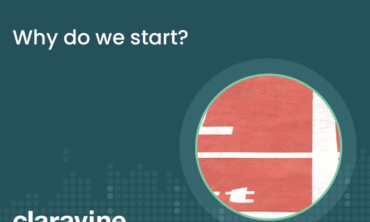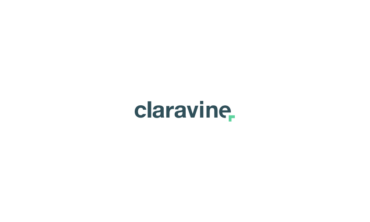Keys to my Success as a Web Analyst
Six by Nine
Today is the last day I’m 42. It has put me in a reflective mood, because on my last birthday, I remembered that the number 42 was the answer to the ultimate question of life, the universe, and everything, according to the Hitch-hiker’s Guide to the Galaxy, which I read in my youth. The existential zinger of that book was not only that the answer was laid out without any explanation, but also that it was based on bad math (six by nine equals…).
But that did not prevent me from setting some high (yet similarly undefined) expectations for myself over the past year. In some ways, I’ve responded. You’re reading this blog post on my website, which a year ago did not exist. Today it houses a solution that I’ve actually been imagining and crafting for nearly ten years, ever since I entered the field of web analytics. So even though it may not seem like much, it has been no small endeavor for me to see it through. In addition, this year I made my first-ever presentation at Adobe’s annual conference (formerly known as the Omniture summit), which according to two separate sources at Adobe received top marks from the audience feedback surveys—although I’m still waiting for my invitation to the awards show.
My Career Path in Web Analytics
With that intro, I want to reflect on my career so far in web analytics, and offer what I consider to be the core skills I’ve developed to help me succeed. I’ll allow that you may not consider my career trajectory to be that successful; I’ve always had a role as an individual contributor, never as a team leader or manager. If you watch The Closer, where Brenda Leigh Johnson’s eclectic team of investigators combine to solve homicide cases in LA, you can think of me as Lieutenant Tao: the guy whose excitement about the technology he uses to solve the crime sometimes overshadows his interest in the crime itself.
When I started at Omniture in 2003, I immediately gravitated towards the technology. A history major in college, I had never even heard of javascript when I took that job as an account manager, but it didn’t take me long to become fascinated by the invisible world of data transfer and in-page logic. As I’ve described before, I taught the first-ever class on SAINT technology for both the AM’s and the IE’s (implementation engineers, although they’ve passed through a series of upgraded acronyms since then)—just because I found it so interesting.
Passion #1: Discovery
I realized, however, that my passion for the technology wasn’t universally shared on my team. I remember coming to an Account Management team meeting giddy with excitement about having resolved one of my clients’ riddles: how their traffic had spiked without seeing any change in their pathing reports. I described how these clues led me to uncover a poorly-written javascript routine on a page that was inadvertently refreshing the image request to Omniture over and over again. I looked around the room to bask in the reflected energy of that discovery, and received only blank stares. The unspoken consensus: “We shouldn’t have to know how to do that.”
Like I said before, maybe this predilection has led me down a twisty path. Casting my mind back, I remember two interactions with my teammates on the Account Management team that make me wonder. Back then we delivered the introductory SiteCatalyst training to new clients, which included a special section on SAINT classifications. I was the go-to guy to help new AM’s know what to say during that part. When I tried to explain the cool factor in using a nested classification hierarchy, one of them became visibly frustrated: she just wanted to get through the training call. The other guy just asked if he could take the call up to that point, then turn the mic over to me. Both of those individuals, now that I think about it, have since gone on to become executives in highly successful analytics companies.
For better or for worse, my determination to keep asking questions about the microscope itself whenever I look through it has been a defining characteristic of my career. Like everybody else, I am amazed by cool stuff, but in this space, my follow-up response is always: “now show me how it did that.”
Passion #2: MacGruber
I wanted to name this section after MacGuyver, the title character in a show about delivering in a pinch with minimal resources. Instead, I had to use the parody character from Saturday Night Live, because I’m such a hack. Just because you can take an engine apart, and despite the fact that you’re bound to learn lots of things you didn’t know, it doesn’t necessarily mean that you can put it all back together and guarantee that it will work better than before. This truth, and all its inevitable consequences, has never once dissuaded me from pulling out my socket wrench set.
But the first thing I do now whenever I get a new laptop is set it up for localhost access. That’s a way to build a website directly on your computer, but I generally use it for debugging analytics issues. When one of my peers comes to me with a tricky analytics issue that I can’t figure out right on the spot, I save the page to my machine, point my localhost root directory at that file, and pull out my socket wrench set.
Unraveling Gordian knots of javascript routines in the safety of my own local machine has not only taught me a lot of great skills, it has given me the confidence to realize that any tracking problem can be uncovered if you dig deep enough, and review the relevant components with enough care. As a kid, I was a fan of John D. Fitzgerald’s Great Brain series, where the narrator extolled the schemes of his uncommonly smart and crafty brother. But my favorite one was called Me and My Little Brain, because it made me realize that even a common mind like my own could eventually win the day.
Passion #3: Mentoring
I can’t think of a way to talk about this without sounding righteous. But I’ve never had an adversarial relationship with any of my peers on any professional team I’ve been on. That might explain, in part, why I’ve never been promoted; but the idea of competing with my coworkers has never appealed to me. Neither has the notion of protecting my job by holding close my best cards to preserve my niche value within an organization.
Maybe I’d feel differently if my cards were considered desirable by anybody else. When I was laid off from HP in 2009, they gave me and the others in the same boat a few weeks to finish things up at work before the severance actually began. I guess the idea was to use HP’s resources to look for another job, which I did to a certain extent. But I also spent a lot of time fruitlessly begging my teammates to learn my web analytics duties well enough to keep the structure I had built intact upon and after my departure. I can still recall the bemused looks on their faces as I was trying to explain the strategic questions you must ask when deciding whether to use a prop or an eVar.
I’ve had more success finding mentoring moments in my online network of web analysts, many of whom have just been entering the field. I’ve joined in discussions on Yahoo Forums and Linkedin groups, frequently branching from those general discussions to individual interactions, where I’ve been able to help people understand specific points by looking together at their website, perhaps uncovering problems or opportunities.
There’s not just good karma that comes from mentoring—each time I make a generous effort, I get back an immediate sense of fulfillment. That’s no small reward in a career, that, like an ocean’s voyage, has crests and troughs to be sure, but just as many doldrums.



